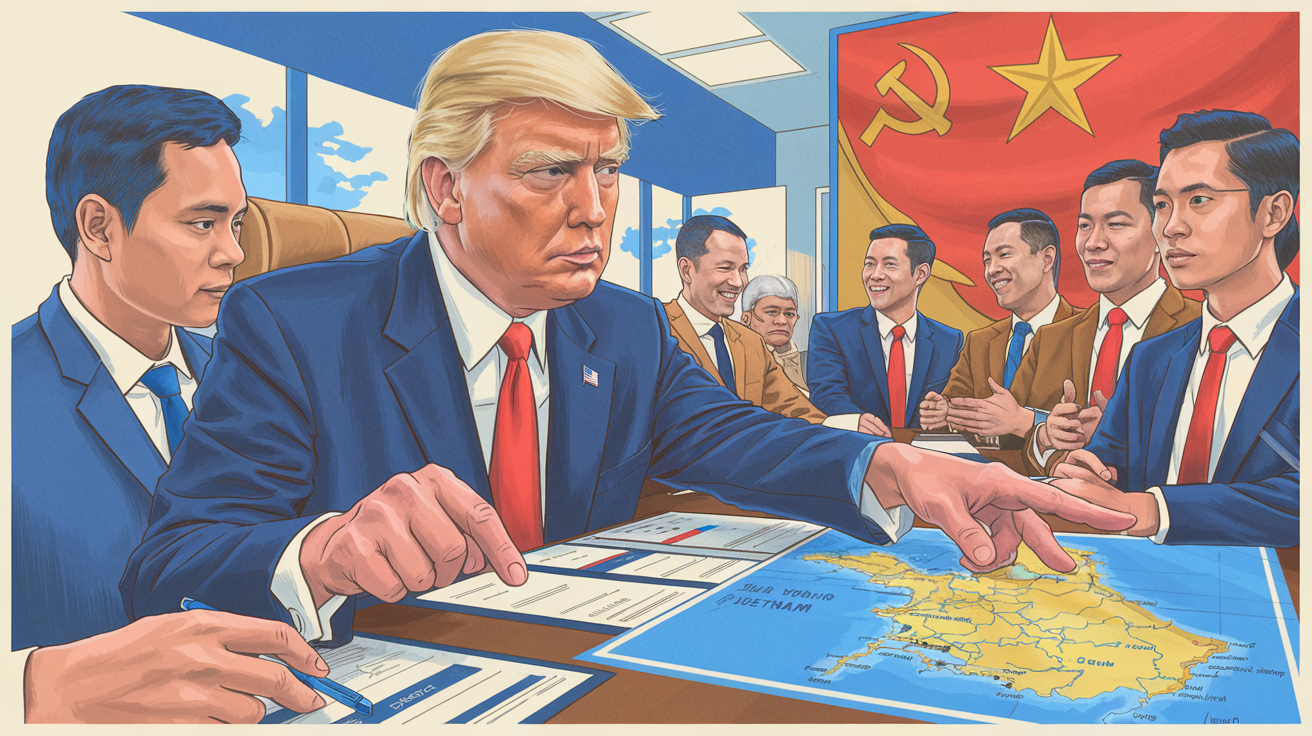While U.S. trade and tax policies under President Donald Trump could pose challenges for Vietnam, they also open significant opportunities, according to Pham Luu Hung, Chief Economist at SSI Securities. Speaking at the "Gateway to Vietnam" online dialogue, Hung pointed to a recent JETRO survey showing that 200 Japanese companies have relocated from China to Vietnam, signaling Vietnam’s growing appeal as an investment destination.
Hung emphasized that Vietnam cannot afford to be isolated from major economies. Instead, it must actively engage in global trade competition. With deepening international ties, particularly with the U.S., Vietnam is in a strong position to attract FDI and expand its role in global supply chains.
Regarding Vietnam’s economic growth targets, he noted that while double-digit GDP growth is ambitious, it is achievable with structural reforms and accelerated development. With only 15 years left in its "golden population" period, Vietnam must act quickly to capitalize on its demographic advantage.

Hung identified public investment, particularly in infrastructure, as a major driver of economic growth in 2025. Sectors such as construction and building materials are expected to perform well.
Additionally, domestic consumption and real estate could play a vital role. If Vietnam’s middle class continues to grow, real estate development could stimulate broader economic activity. Despite some concerns among foreign investors about large property developers, mid-range real estate firms remain attractive investment options.
The Vietnamese government is also taking proactive steps to simplify licensing procedures and implement new land-related laws, which could help boost the real estate market and increase market supply.
At the same event, Frank Kelly, founder of Fulcrum Macro Advisors LLC, highlighted Vietnam’s growing trade relationship with the U.S.. In 2024, Vietnam’s exports to the U.S. reached nearly $120 billion, while imports from the U.S. totaled just $15 billion, resulting in a significant trade surplus.
However, he noted that the Trump administration has not yet clarified its specific policies toward Vietnam. One key concern is the re-routing of Chinese exports through Vietnam to bypass U.S. tariffs—a trend Trump’s administration wants to prevent.
At a separate event on January 8, Bob Bauer, President of the U.S. Association of Food Industries, emphasized that Trump’s tougher stance on Chinese imports could create more opportunities for Vietnam.
As U.S. policies evolve, Vietnam must:
Despite uncertainties, Vietnam remains well-positioned to turn challenges into opportunities, reinforcing its role as a key trade and investment hub in Asia.